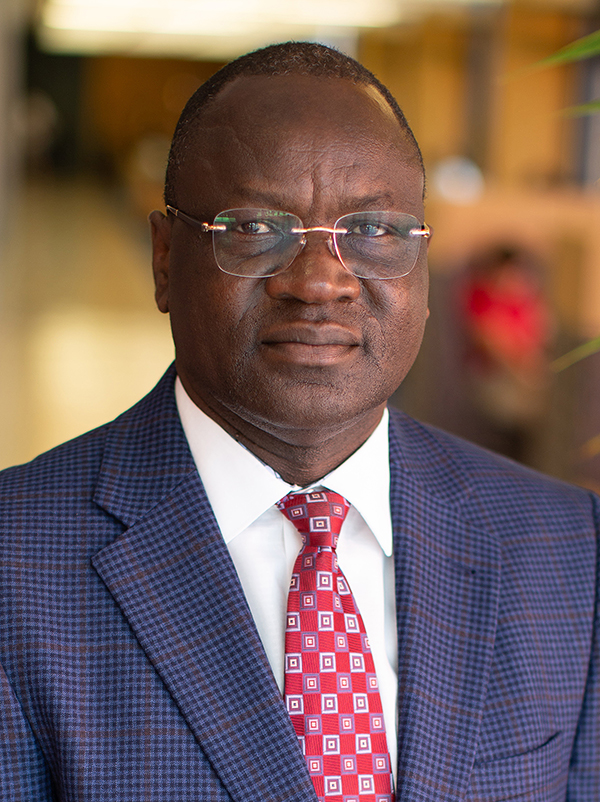Fred O. Walumbwa, a professor in the department of international business and a Faculty Fellow with the Office to Advance Women, Equity & Diversity (AWED), was ranked in the field of business and management by an analysis of author citations across all the sciences published by the journal PLOS Biology.
The author database assessed scientists’ career-long impact by counting the number of citations of their work from 1960 through 2019. Starting from a pool of eight million scientists who have published at least five papers in their careers, the article ranked the top 2% of authors across 174 fields. A total of 978 researchers made the top 2% list in the field of business/management.

Walumbwa was thrilled to learn he was part of the list, calling it a dream of any researcher.
“To see your name included along with some of your mentors and top names in the discipline, you can’t ask for anything more. I am delighted and humbled by this recognition, and sincerely hope that this will inspire others, especially minority groups, that nothing is out of reach.”
Management is a broad area of inquiry that is responsible for the effective running of any organization. Says Walumbwa, “I see management research as a means to provide organizations with tools and with the knowledge of how those tools work and under what conditions they are likely to be the most beneficial, all based on science.” His research focuses on understanding how positive forms of leadership behaviors enhance or inhibit climates more open to corporate, work unit and employee citizenship and proactive behaviors, engagement, fairness, learning, creativity/innovation, knowledge sharing, and withdrawal behaviors across cultures.
Walumbwa is a firm believer in the idea that leadership makes a real, tangible difference in our lives, organizations, and society, and his research began with an interest in understanding factors that contribute to leadership effectiveness. “As part of this interest, I became fascinated with two broad questions: Are certain leader behaviors and styles culturally universal? Do theories of leadership developed in the Western world, and particularly in the U.S., generalize to other non-Western countries, such as diverse African countries or cultures?”
Walumbwa was part of a team of researchers associated with a pioneer work on authentic leadership, the first ever theory-based measure of authentic leadership behavior (the Authentic Leadership Questionnaire). “We define authentic leadership as the extent to which a leader is aware of and exhibits a pattern of openness and clarity and is consistent in his or her disclosure and enactment of personal values, motives, and sentiments.”
Authentic leadership comprises four-related critical dimensions Walumbwa and the team believe need to be present: balanced processing, an internalized moral perspective, relational transparency, and self-awareness.
Walumbwa has published over 100 papers, including over 60 refereed research articles in a wide range of prestigious journals in business, management and psychology, book chapters, peer-reviewed proceedings, and technical reports; and has made over 100 national and international conference presentations and lectures. In August 2019, he was identified as the fifth most productive leadership scholar during the period 2004 to 2010 and 11th most influential leadership scholar during the period 1990 through 2017, placing him among the top 20 influential leadership and productive scholars in the world.
He’s frequently asked how he has the time to be so productive. “It’s not a question of time management as much as it is a dedication to hard work, persistence, and resilience. You have to be mentally and physically prepared to sustain this level of productivity for a long time.”
Walumbwa also finds the time to serve as an AWED Faculty Fellow. He was impressed by the office’s mission to achieve and sustain faculty equity and diversity as an element of FIU’s academic excellence.
“I wanted to be part of this story by bringing in my years of research experience and success to help build the structures that accommodate and celebrate equity and diversity as a competitive advantage for FIU.”
